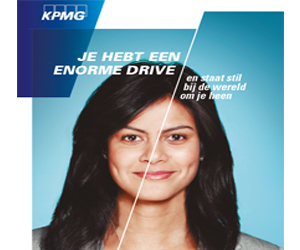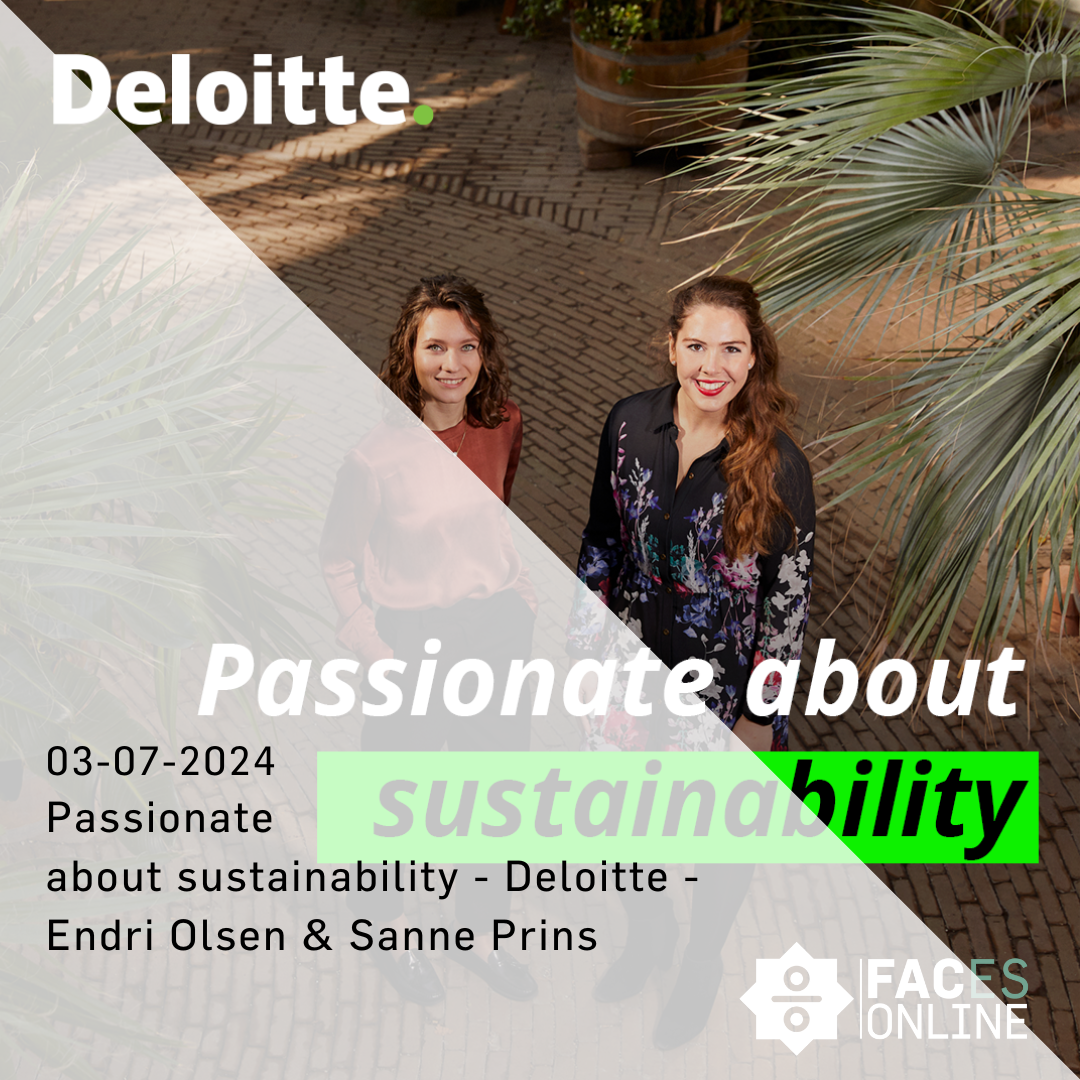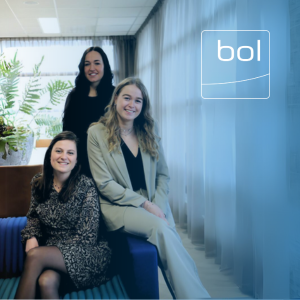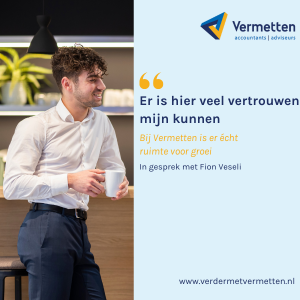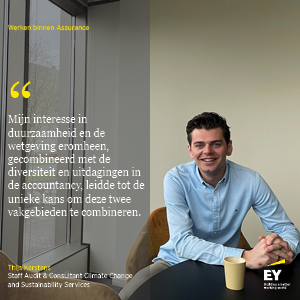'Developments in the field of sustainability are moving fast. Being part of that, helping clients get ready and making an impact, is something we are


Daan van Baarsen, CFO Efteling, talks in this deepening interview about the controls of the Efteling, how it was impacted by the crisis, its exchange rate risks and future as well as the future of the accounting profession.
Could you tell us something about yourself, your education and your career?
After attending HEAO, I started working for Philips. They were pretty advanced in controlling their organization, so this is also where I learned the profession and started to like what I was doing. I learned being close to the management and providing them with useful information for decision-making. In 1991 I started working for the Efteling. At that time the organization was not that far advanced in controlling so I helped it gradually in reshaping from a pure accounting to a controlling organization.
Are there any big differences in working for Philips as compared to the Efteling?
At Philips you were a very small part of a big organization whereas the Efteling had only four-hundred-fifty employees when I started working here. Besides that, at that moment the Efteling just became a private company instead of a foundation so a lot of things were in the process of being automated as opposed to Philips where this automization was already in place. Furthermore the culture within the Efteling is very different from the culture of a big organization such as Philips. There is a sort of family culture, which we call: ‘The Efteling feeling’. It cannot be expressed into words, but one gets that feeling inside and it makes you not want to leave.
Are there any remarkable differences concerning controls between the Efteling and Philips as they operate in such different industries?
Yes, for example the renting of rooms at the hotel requires different controls, like checking on occupation, which I never saw at Philips. However the most important different control is the one for the entry tickets, because it is the main part of your revenue. You need to make sure that everyone has a ticket and that no one can fake or copy tickets. Most of the time these controls are automated. Finally, there is no international business; I never need to call an office in Germany or Malaysia, which I did have to do at Philips.
Which financial considerations are taken before an attraction is bought?
The first phase is analyzing the client’s needs and the available opportunities at the market. In the second phase a financial framework is made, which includes solvency, risks etc. During this phase the appearance and content of the attraction are developed, a factor in which the Efteling distinguishes itself from other theme parks. The third phase is the calculation phase where I decide upon an amount that can be spend. The general assembly and the commissioners have to approve this amount. Then in the next phase we make a final design and calculation. When the final calculation exceeds the budget we need approval from the commissioners again. In the last phase the design is completed and offers from tenders are being analyzed. We also decide if the new attraction allows us to raise the entrance price by discounting the future cash flows.
Does the Efteling experience exchange risks?
Yes sometimes it does. For example, ‘Aquanura’, the water show is built in cooperation with “Wet Design” in America, so it is susceptible to the exchange rate risk. However we are risk-averse and always hedge the risk. Afterwards it might turn out it was a stupid decision, and it would have been more profitable to not hedge it but at least you have a fixed and certain exchange rate. The new ‘dive coaster’ (Baron 1898) is being supplied by a Swiss company. As we all know the Swiss Franc is really high at the moment, luckily our contract is signed in euros. If we did not have this agreement I would be obligated to hedge it.
How did the crisis influence the Efteling?
Our number of visitor even increased with one million in 2009 due to the Albert Heijn promotion where we increased the discount from eight to ten euro. We have been able to keep this increased visitor amount which is very important in a crisis. However we did suffer from business to business, these results have halved from thirteen million (in 2007) to seven million. Also in golf we have suffered, mainly the business to business has collapsed. No account manager goes to play golf with his clients to do business anymore, that takes too much time. We always have been more or less countercyclical. The first thing people save on is a third vacation, then a second, they are not going to save on a trip to the Efteling. Now, however, we could ask ourselves the question whether we still are. Since in the earlier years a crisis lasted relatively short, around 3 years. Whereas now it commenced in 2007 and we are still in it. They call it the ‘new reality’, they say we will never go to the 2007 level, however I don’t believe that. I do believe that in the end we did feel some impact from the crisis.
How do you think the Efteling will look like in ten years?
At the moment there is a focus on becoming an international destination in ten years. In the earlier years we were the number one of Europe, nowadays we are not. Disney has opened in 1992 and has around thirteen million visitors. We have around four and a half million and want to grow to five million. We want to attract this growth mainly from Nordrhein-Westfalen, Belgium and England. We check the nationality of the visitors mainly by license plates. This check is executed manually at the moment but we are planning to automatize this in the future. To attract this target audience we spend on marketing and build new accommodations. In the earlier days a German could arrive easily at 10am and be home around 7pm but now there is a lot of traffic around Eindhoven. The other reason for building the accommodation is of course that people can spend more days in the park, this brings a multiplier effect which gives a large boost in our turnover. We also attempt to remain an attractive park by investing in attractions.
How did you, as being a client of a big 4, experience the results of the report ‘in the public interest’ (‘in het publiek belang’)?
I did not really notice that the quality is insufficient. This might be due to the emplacement of the Efteling; I have nothing to hide. Together with the accountant we want to attain a good level of control. This is only possible when the controls that we perform are correct and the accountant can rely on our system. The Efteling also operates mainly as one private company and is therefore rather easy to check compared with Philips which has a structure that is a lot more complicated. I also have nothing to do with IFRS rules or being obligated to report the third day of the subsequent month. We report in the third week of the subsequent month, so I have enough time to neatly book all the invoices. This takes away a lot of risk since we do not really have to make a lot of estimations regarding the accounts.
Would you recommend being a controller instead of an accountant?
In my opinion seeing result of your work is very nice. A controller stays inside a company and sees results of his actions whereas an accountant and consultant stay only for several weeks and then move on to the next company, they cannot see results. But some people love variety. Furthermore the accounting profession will become more complex because of the changing rules caused by companies that do not abide by the rules.
How will the accountancy world look like in ten years?
I think we will still need accountants because they have the important task to objectively clarify the situation of an organization to their stakeholders. However I do think the organization of the accounting firms, the partnership culture and the earnings model, will change. Since at the moment in my opinion there is not enough equality in pay/performance in the accounting profession between the hardworking beginning accountants and the partners. I also think the audits will change because we are getting more and more data. Everything will be digital and automated. The controls will be included in the system and there will be an online connection between the firm and the auditor so that the auditor can perform his interim audit in any period, so even in the summer time (the least busy accounting season).
Which advice do you want to give to our students?
It is of course important that you know what finance is but you have to make sure that you can communicate. Especially when you give a presentation to the supervisory board or other stakeholders, you have to think about the right way of talking/ clarifying everything to them. You have to talk differently to them than to, for example managers that have a thorough understanding of the various specific features. Also be prepared for all their potential questions.






